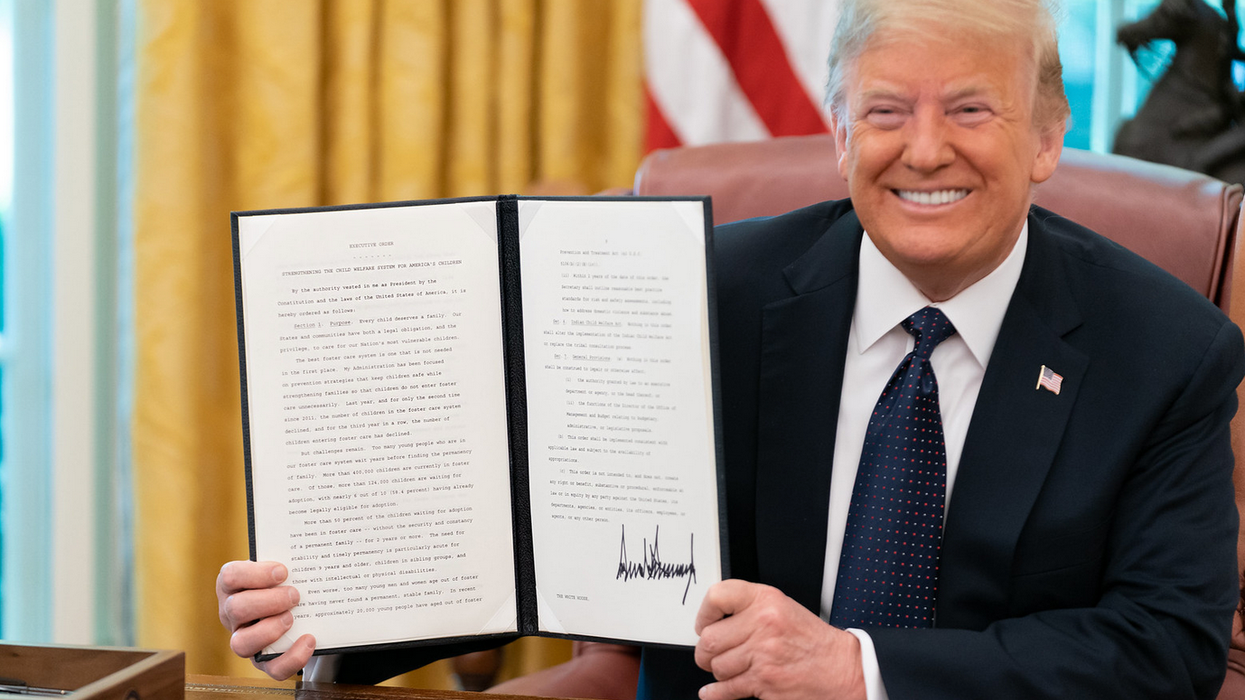Former CIA official and George Mason University Hayden Center director Larry Pfeiffer broke down exactly the types of documents former President Donald Trump was hoarding in his Mar-a-Lago stash in an article for The Bulwark — and he made it clear that Trump's actions were dangerous to national security.
The key point, noted Pfeiffer, is that prosecutors have revealed many of the "top secret" documents actually went even higher than that classification, as they were part of "special access programs," a type of intelligence so secret that prosecutors even had to redact the codenames, because just the disclosure of those without any information about what they were could put military and intelligence officials in danger.
"These included documents about the nuclear capabilities of another country, military attacks by a foreign country, the military capabilities of a foreign country, the timeline and details of an attack in a foreign country, the regional military activity of a foreign country, the military activity of foreign countries and the United States, and military activity in a foreign country," wrote Pfeiffer. "And as sensitive as the subjects of those documents are, what was really put at risk by our former commander-in-chief were the nation’s most sensitive activities and information derived from them."
"These are programs or activities so sensitive they require enhanced safeguards and the strictest access requirements," wrote Pfeiffer. "Even those who go through the arduous and sometimes years-long process of obtaining a Top Secret clearance often require additional security adjudication for to gain access to SAPs. Details of SAPs are usually limited to the bare minimum number of people with a 'need to know.' Some are divided into several compartments with individuals given access only to those compartments requiring their expertise or knowledge; only a select few — a dozen or so, maybe fewer — might have access to the totality of the SAP."
Examples of the sort of information found in SAPs, wrote Pfeiffer, include research on new, experimental weapons systems, which could tell our adversaries how to neutralize our capabilities; information about active spies, which could compromise critical operations, get operatives killed, and make it much harder to even recruit new operatives; and documents that detail the “planning, execution, and support” of elite military operations, like the raid that killed Osama bin Laden.
Eight of the documents Trump is charged with removing, noted Pfeiffer, may contain at least some sort of SAP information — including from so-called "unacknowledged" SAPs, which are so secret that even the top-level reference to what program they are about is classified.
"It may be months or even years before a jury determines whether the former president is guilty," concluded Pfeiffer. "The president, his lawyers, and his political supporters will make legal arguments about the Espionage Act, the Atomic Energy Act, and the constitutional powers and privileges of the presidency ... But ultimately they are independent of the more important consideration: Trump endangered our national security, putting us all at greater risk, and must be held accountable."


